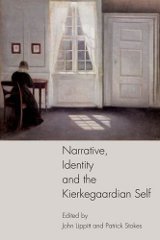In 1994, an impish Northern Irishman stood in front of a room full of smelly, doubtful-looking sixteen-year-old boys, and declared “By the end of this term, I will make you love Keats.” Incredibly, it worked. After weeks of luxuriating in every syllable of “Ode to a Nightingale,” pulling apart every line of “To Autumn,” we loved John Keats.
So it was quite a shock, not long after, to get to university and learn that this approach to literature didn’t cut it in the English Department. That books, or ‘texts’ as we soon acquired the tic of calling them, were social products that play a range of political and cultural roles, not all of them good. “Your enjoyment,” as one lecturer told us, gently but firmly, “is none of my business.”

Outrage at this discovery is how a certain class of young fogey is made, latter-day F.R. Leavis-es railing against those damned postmodernists ruining everything. It almost happened to me. Perhaps it’s what happened to Senator James Paterson, the latest IPA-adjacent voice to attack the Australian National University for rejecting the Ramsay Centre’s Bachelor of Arts (Western Civilisation) program.
On Paterson’s telling, the rejection demonstrates the very thing the Ramsay program is designed to counter: a “rampant anti-Western bias” among academics and a corresponding lack of “viewpoint diversity” in our universities.
For people supposedly hostile to the West, humanities academics in Australia teach disturbingly little else. This year I’ll spend all of six weeks teaching non-Western philosophy, and even that’s unusual. As for the dreaded ‘cultural Marxism,’ the Ramsay Centre’s curriculum contains considerably more Marx than ours does.
The Ramsayite complaint however is less about what we teach as how we teach it. Sure, we cover European thought and history, they say, but we’re just so damn critical, obsessed with the sins of colonialism and cultural imperialism rather than the achievements of our forebears.
Ironically, that critical stance is itself an Enlightenment value, which is precisely why the Enlightenment’s loudest critics came from within. This fact troubles those who want to gerrymander the ‘West’ into a clean, linear narrative that takes in everyone from Plato to Hayek but excludes ‘postmodernists,’ as if Nietzsche and Foucault weren’t as much the children of Aristotle and Christ as Kant and Locke were.
Why are academics so critical? Because that’s the job you pay us to do. The function of universities is to create and disseminate knowledge, and you can’t do that by simply nodding along enthusiastically. Hagiography, like huffing Keats, is often fun but rarely useful for understanding the world, let alone fixing it.
Critical isn’t the same as hostile. It’s just what we have to do in order to do our job as scholars: determine which ideas are serious candidates for the truth, and which aren’t. It’s not our job to make you feel comfortable about your heritage. Your enjoyment is none of my business.
Yet the Ramsay vision seems to be all about providing such comfort. It fluffs the pillows of a dying, self-congratulatory view of history while complaining that the doctors won’t admit what excellent health their patient is in.
Tony Abbott insists that the Ramsay Centre — his idea, as we now know — is ‘in favour’ of Western Civilisation, not simply ‘about’ it: “it is “for” the cultural inheritance of countries such as ours, rather than just interested in it”. Not all cultures, Abbott has argued for several years now, are equal.
But therein lies a fatal contradiction. If you think that the Western tradition is valuable because its beliefs — say, science or universal human rights — are in fact true, then your interest is not actually Western Civilisation, but truth per se, and you should fund courses in that. (Good news: you already do).
If on the other hand you think universities should study Western Civilisation as a distinct culture or contingent historical formation, then you’re committed to studying it with the same critical detachment as anything else.
In other words, the Ramsay Centre’s approach turns out to be incoherent: either it’s about Western Civilisation, or it’s in favour of truths that transcend it. To be ‘in favour of’ Western Civilisation itself simply because it’s one’s own heritage would not be scholarship, but something else entirely.
One of those non-Western philosophers, Kongzi — or as the West insisted on calling him, Confucius — argued that the first step in putting the world to right is giving things their proper name. So let’s call the Ramsay proposal what it is: indoctrination.
Senator Paterson declares that “universities don’t receive such generous funding so that fringe academics can impose their narrow worldview on the next generation of students.” Perhaps he could tell his friends at the Ramsay Centre to stop trying to do just that.
Originally posted on Medium.








